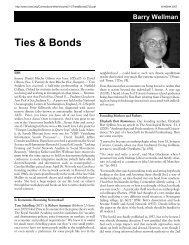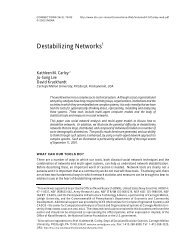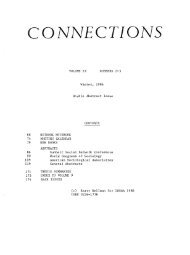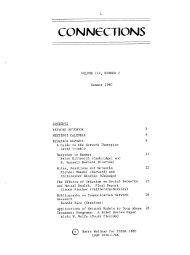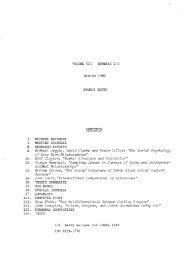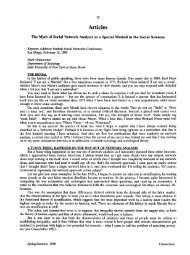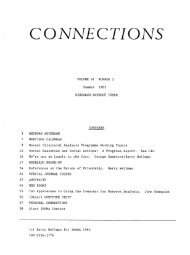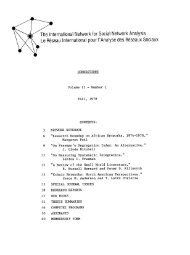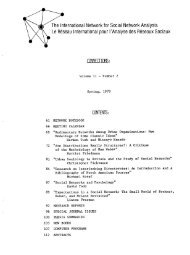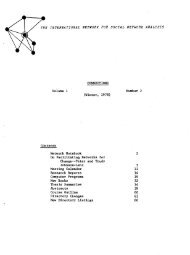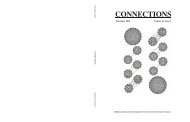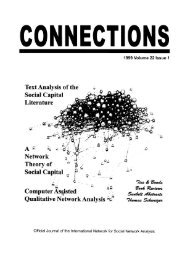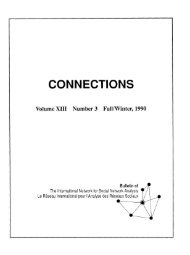Sunbelt XXXI International Network for Social Network ... - INSNA
Sunbelt XXXI International Network for Social Network ... - INSNA
Sunbelt XXXI International Network for Social Network ... - INSNA
Create successful ePaper yourself
Turn your PDF publications into a flip-book with our unique Google optimized e-Paper software.
The Configuration Of Signed Relations In An Online <strong>Social</strong> Environment: A Balancing ActActon, Ryan M.<strong>Network</strong> TheoryOnline <strong>Network</strong>s, Balance Theory, Discrete Choice AnalysisFRI.AM2The concept of balance, which traces back to psychologist Fritz Heider (1946), was developed in order to explain a cognitive process within individuals thataffects the way they feel about others to whom they are tied. When the relations one has with others "agree" with each other, that person feels a sense ofsatisfaction. If, however, those relations are discordant, the individual is motivated to act in ways that reconfigure the situation, either cognitively orstructurally, in order to achieve a sense of satisfaction, or balance. Since Heider, numerous scholars have attempted to empirically test, refine, and generalizeideas of balance. This paper investigates the possible choices with which actors are faced and the extent to which actors make those choices in balancetheoretic ways. By utilizing signed, relational data from the online community Epinions.com, I study the <strong>for</strong>mation process of several kinds of dyadic andtriadic configurations. Mixed support is found with regard to the extent to which actors behave in balance theoretic ways. Results and implications arediscussed.The Contextual Dependence Of <strong>Social</strong> <strong>Network</strong> ActivationSamila, Sampsa; Erikson, Emily<strong>Social</strong> Capital<strong>Social</strong> Capital, Communication <strong>Network</strong>s, Large‐scale <strong>Network</strong>s, In<strong>for</strong>mationSAT.PM2<strong>Social</strong> networks are ubiquitous in social and economic life. <strong>Network</strong>s act as conduits of resources such as status and in<strong>for</strong>mation. While our knowledge aboutthe kinds of network ties used <strong>for</strong> carrying different types of resources, especially in<strong>for</strong>mation, has grown considerably, we know very little about when actorschoose to rely on the in<strong>for</strong>mation carried by network ties. Here we outline a theory and empirically study how context affects the choice of actors to rely onthe in<strong>for</strong>mation from their social networks. Using data from the English East India Company’s shipping network, we find that the captains were more likely torely on in<strong>for</strong>mation carried by social network ties early in their careers but less so later as their own experience grew. Likewise, the level of autonomy enjoyedby the actors has a positive effect on their reliance on network in<strong>for</strong>mation. Environmental uncertainty also increases the importance of the timely in<strong>for</strong>mationcarried by networks. When the diversity of in<strong>for</strong>mation carried by networks increases, we find that personal experience becomes increasingly important indeciding what course to take. Our theory and results contribute to our understanding of the role of networks economic and social life.



